The 1973 Strawson-Evans Discussion: Three Unanswered Questions

By Christopher Peacocke

The 1973 film of the conversation between Peter Strawson and Gareth Evans on truth is apt to cause a Proustian nostalgia in the dwindling group of those who were members of the Oxford philosophical community in the early 1970s. Nostalgia aside, its philosophical interest remains. Before I turn to philosophy, I note the importance of preserving video records of current philosophical discussions that of are of comparable interest. Many of them are on YouTube, but we cannot not leave it in the hands of for-profit organizations to preserve the historical record. We need a JSTOR for video recordings of discussions of intellectual interest, both in philosophy and in other disciplines.
On the philosophical side, the Strawson-Evans conversation seems to me to raise three great questions, but also to leave them unanswered:
(1) How are we to understand the distinction between sentences (or propositions) whose truth conditions holding are a matter of what is, as Strawson puts it, “in the world” and those that are not; and how if at all does the distinction bear on matters of truth?
(2) What is the relation between recursive specifications of truth-conditions in a language and Ramsey’s schema? Are these competing views about truth, or not; and in either case, how so?
(3) How are we to explain the nature of the distinction between those utterances that have a truth-condition and those that are purely expressive? Saying that it is simply a matter of whether a genuine belief is expressed does not amount by itself to a satisfying answer. Take whatever may be your favourite example of the purely expressive case (such as ‘this is nice’ said on eating dessert), and you will find that we still say the utterer believes what he has said. So more philosophical work is required.
On Question (1), Strawson says that propositions about physical objects, about mental states and events, and about social organizations all state how things are in the world. Of the proposition that 7+5=12, however, Strawson says “Now, it’s quite clear that this doesn’t state how things are in the world”. He says the same about propositions of morality. Evans agrees with the distinction.
The obvious elucidation of the distinction is that a subject-matter that is “in the world” is one with which we interact causally. It is because this is so that there is a relatively straightforward answer to this question: in virtue of what relation to these subject-matters are thinkers able to refer and think about them? If, however, there is equally a good, but different, answer to this fundamental question in the case of subject-matters where causal interaction is absent, why should we downgrade, or regard as mere ‘extensions’, the notion of truth and reference for these other domains?
It is at this point the conversation may seem a little dated, for the issues look different in the light of work on metaphysics in the decades subsequent to 1973. In the particular case of natural numbers, one view is that each natural number nis individuated by the condition for there are to be nobjects having a given property. Corresponding to this account of the nature of natural numbers, there is a matching account of the noncausal relation in virtue of which a thinker is able to think of a particular natural number, viz. that the thinker has tacit knowledge of its very individuating condition. This treatment is an example of what I called ‘Individuation Precedes Representation’ in The Primacy of Metaphysics. There are corresponding accounts of the nature of addition and grasp of addition.
Under this treatment, in the domain of these abstract objects, truth has exactly the same form of local explication as it has in the case that Strawson and Evans would describe as concerning what is “in the world”. The condition for the truth of ‘7+5=12’ is that the operation referred to by ‘+’ applied to the natural numbers referred to by ‘7’ and ‘5’ yields the natural number referred to by ‘12’. I am then entirely in agreement with the view endorsed by Evans at one point: the distinction between what is ‘in the world’ and what is not does not coincide with that between those in which some basic notion of truth applies and those which involve truth only in some ‘extended’ sense. While there is certainly much more to be said on these matters, the model of truth as depending on referential relations and the way things are in some domain applies au fond in both kinds of case.
To address the Unanswered Questions (2) and (3), I propose a Hypothesis. The Hypothesis has two parts. It states, first, that the notion of an entity, in the broadest sense, having a property in the broadest sense, or an n-tuple of them standing in a n-place relation, is fundamental and essential to any notion of truth or representational content, both for sentences and propositions, and indeed for other cases such as that of perceptual content. Any recursive specification of truth-conditions always has such a notion at the base case of the recursion. Truth-conditions for more complex contents always ultimately involve reference-conditions. Tarskian accounts of truth in a given language exemplify this point. Evans was right to suggest early on in the conversation that certain general points emerge from Tarskian truth-theories for particular languages. The first part of the Hypothesis vastly generalizes Evans’s point.
The second part of the Hypothesis is that genuine content, as opposed to merely expressive meaning, always has to be explained in terms of a relation to this fundamental level of reference. As a corollary of this second component of this Hypothesis, what makes some meaning merely expressive, and not a case of substantive belief, is that its nature is not given in terms of reference relations.
If this Hypothesis is correct, it answers not only Question (3), but also Question (2). Ramsey’s schema, applied at face value, applies to any indicative sentence, even to those in which there is merely expressive meaning, where we want to say there is no substantive correctness-condition. So if the Hypothesis is correct, the answer to Question (2) is that the recursive specifications of truth are more fundamental in the philosophical explication of truth than Ramsey’s schema.
This is just a manifesto-like statement of the Hypothesis. A full defence of the Hypothesis needs to draw a sharp distinction between two kinds of role a content or sense may have in the normative psychological economy of a thinker. There are those roles whose very nature involves a relation to the condition for something being the reference of the sense; and there are those roles that do not. A detailed elaboration of the Hypothesis needs to show how, for particular senses of interest, there is involvement of reference-relations, and to show the consequences of such involvement. In general we can expect such a demonstration to explain how grasp of some sense is related to the very nature of the entity that is the reference of that sense. This can be done both for those senses that are about things “in the world” in Strawson’s sense, and for those that are not.
In the purely expressive cases, there is no need to make use of a reference relation at all in explaining grasp of the sense (which would not prevent us from speaking of virtual entities, in something of the spirit of Quine’s virtual set theory). The Hypothesis, if correct, seems to me to squarely vindicate Evans’s statement that “anything appropriately regarded as true or false is a proper object of belief” – but one does need the Hypothesis to explain in detail what “appropriately regarded as true or false” means here.
Finally, on the contested issue of realism about morality, I suggest that the Hypothesis locates the issue in precisely the right place. Only if we can give an account of what a moral property is, and the relation a thinker must bear to it to be thinking of it in moral terms, are we in a position to defend the notion of truth as applicable to moral discourse. Just as in other cases, the notion of truth is applicable in this case if an account of grasp of the content has to mention a referential relation ineliminably. If there is no need for mention of such a relation, the expressivist position about morality can be developed. But for the reasons given above, if the realist position about morality is correct, there is no justification for thinking that the notion of truth applied to moral propositions is merely an extension, or in some way not ‘primary’. The model of truth as dependent on reference relations, and on the properties and relations in which the references of the expressions or senses stand, would strictly and literally apply in the moral case too.
While Questions (1) – (3) are not addressed in the discussion between Strawson and Evans, it is a reflection of the generality and fruitfulness of the discussion that they loom so large. Almost fifty years later, they are the right questions to be discussing.
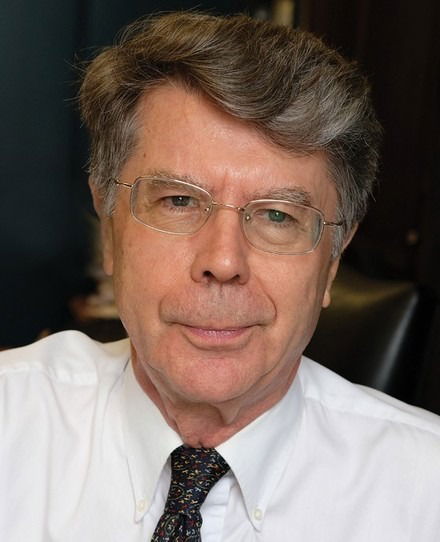
ABOUT THE AUTHOR
Christopher Peacocke worked in Oxford and London before moving with his family to New York in 2000. He was successively a Fellow at All Souls College, a CUF Lecturer in Philosophy at New College, Susan Stebbing Professor of Philosophy at Kings College London, and for almost twelve years Waynflete Professor of Metaphysical Philosophy at Oxford, and a Fellow of Magdalen College. After four years at New York University, he moved to Columbia University, where he is Johnsonian Professor of Philosophy. NYU continues to play a large part in his philosophical life. So too does London, where he is an Honorary Fellow at the Institute of Philosophy in the School of Advanced Study, a Visiting Professor at the New College of the Humanities, and where in the summers he was Wollheim Professor of Philosophy at UCL for eight years. His books include:
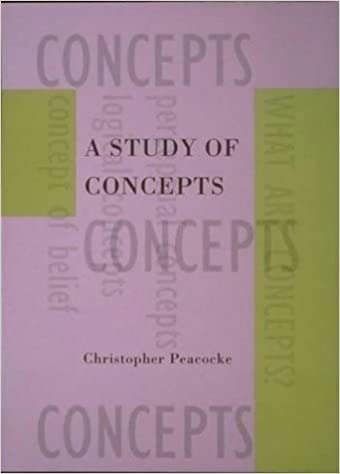
A Study of Concepts (1992),
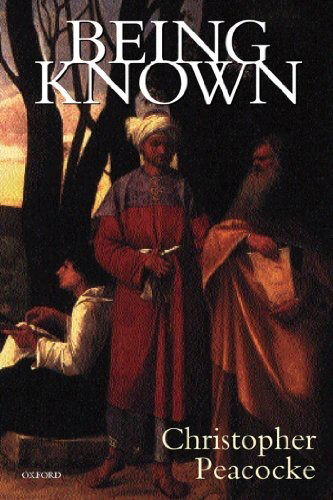
Being Known (1999),
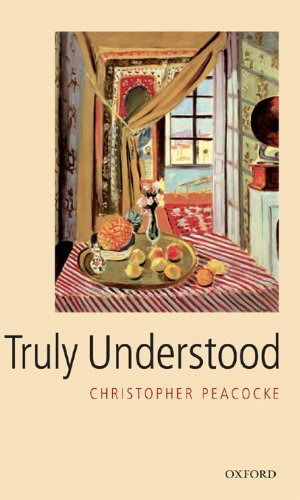
Truly Understood (2008),
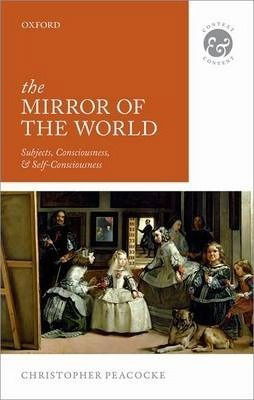
The Mirror of the World: Subjects, Consciousness, and Self-Consciousness (2014),
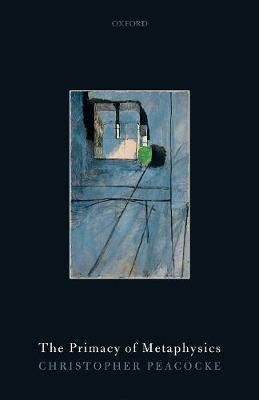
and The Primacy of Metaphysics (2019).
He continues to work in the intersection of the philosophy of mind, metaphysics, and epistemology. Philosophical issues raised by the perception of music have also been occupying his time.